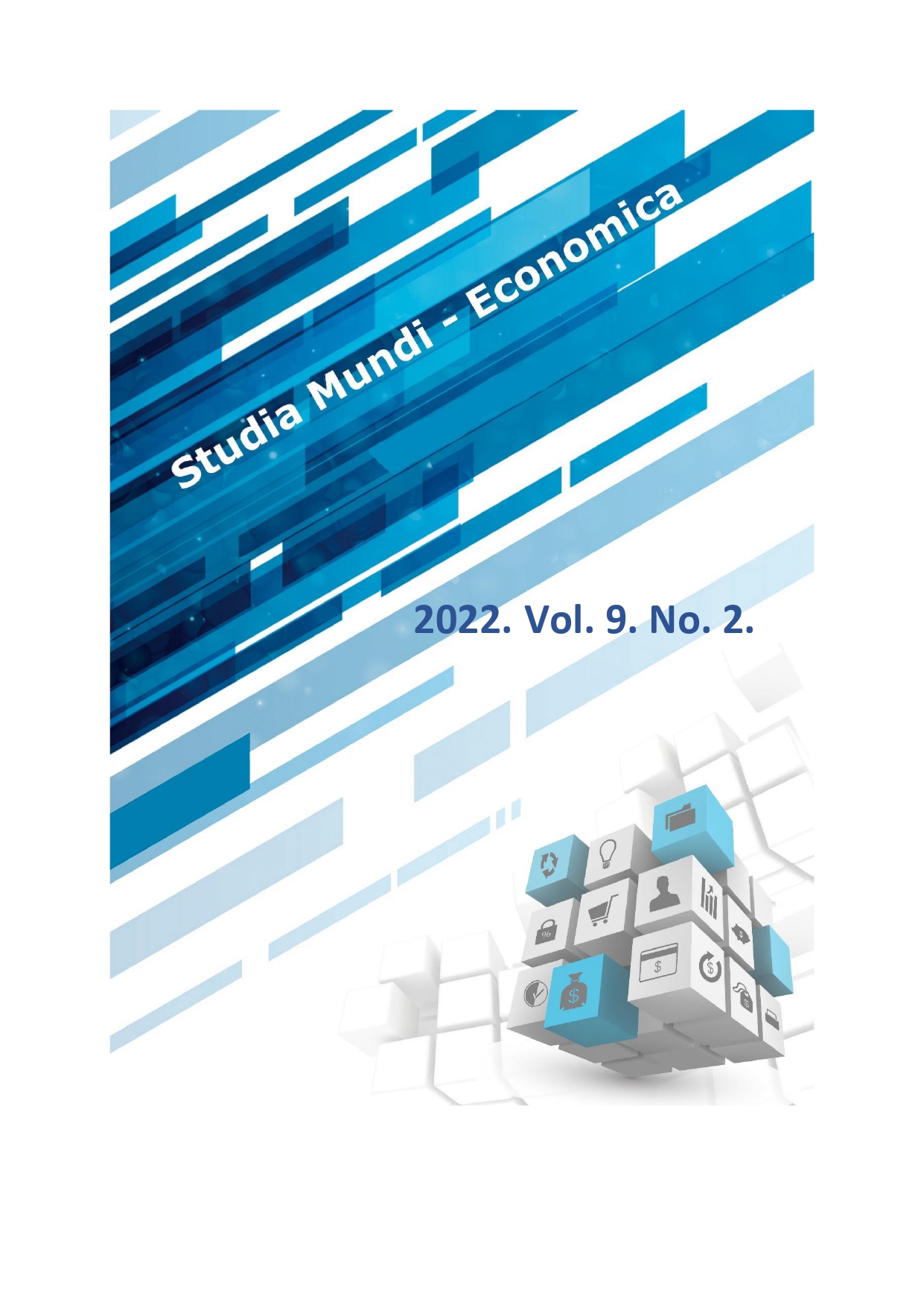Generational differences and motivation in the food industry
DOI:
https://doi.org/10.18531/Studia.Mundi.2022.09.02.37-48Keywords:
motiváció, generáció, különbségek, jóllét, fluktuációAbstract
In the face of changing economic and environmental factors, labour turnover remains one of the key issues for companies. As one of the unanticipated effects of the pandemic, managers have been confronted with the fact that workers' reactions have changed, changing jobs more frequently and more quickly. In our study, we analysed the motivational differences between generations. Literature evidence shows that significant differences in generational values have emerged and should be prioritised in motivation and incentives. Our research was carried out among employees of large food companies. Data were collected using a snowball method, in which a database of 126 respondents was developed. ANOVA analysis and LSD post hoc test were used for data analysis. The results show that there is evidence of motivational differences between generations, which managers need to build on in their motivational strategies and practices. Generation Z and Y employees have more difficulty identifying with organisational goals and are more likely to plan to change jobs. Organizations need to shift the paradigm in their internal communication practices to ensure that corporate "messages" reach all employees.
References
Bencsik A. - Horváth-Csikós G. - Juhász T. (2016): Y and Z Generations at Workplaces. Journal of Competitiveness 8 (3) p. 90-106. DOI: https://doi.org/10.7441/joc.2016.03.06.
Csapai, Gy. E. - Varga, D. - Berke, Sz. (2020): Analysis of time management and self-management work practice by leaders – a focus group study. APSTRACT - Applied Studies in Agribusiness and Commerce 14: 3-4 pp. 133-140. , 8 p.
Czeglédi Cs. - Hajós L. - Kollár P. Marosné Kuna Zs. - Miskolciné Mikáczó A. - Varga E. (2018): Motivations and attitudes to entrepreneurship in Hungary based on a 2015 examination. Studia Mundi - Economica 5: 3 pp. 136-147. , 12 p. DOI: https://doi.org/10.18531/Studia.Mundi.2018.05.03.136-147
Dajnoki, K. - Héder, M. (2017): „Új szelek fújnak” – a HR válasza a globalizáció és a változás kihívásaira. Hadtudomány, 84-93. DOI: https://doi.org/10.17047/HADTUD.2017.27. E. pp.84-93
Dernóczy-Polyák, A. - Kurucz, A. (2020): A modern értékek csak a bennszülötteké? In: Dernóczy-Polyák, Adrienn Kutatási jelentés 4. Győr, Magyarország : Universitas-Győr Nonprofit Kft. (2020) pp. 160-167., 8 p.
Gyurián N., Gyurián Nagy, N., Koczmann K. (2021). Változó munkavégzés a Covid-19 világjárvány idején. In: Csiszárik-Kocsir, Ágnes; Varga, János; Garai-Fodor, Mónika (szerk.) Vállalkozásfejlesztés a XXI. században 2021/1. kötet: Üzleti megoldások és gyakorlati tapasztalatok a menedzsment területén. Budapest, Magyarország: Óbudai Egyetem, Keleti Károly Gazdasági Kar pp. 47-65.
Jakab N. - Mélypataki G. - Solymosi-Szekeres B. - Berényi L. (2021): A generációk közötti együttműködés elősegítése a kiskereskedelmi munkahelyeken, In: Miskolci Jogi Szemle, Évf. 16 szám 4, 2021/4. szám, 55-78 pp, DOI: https://doi.org/10.32980/MJSz.2021.4.1258
Joshi A. et al. (2010): Unpacking the generational identities in organizations. Academy of Management Review 35 (3) p. 392-414.
Khan N. (2019): Does Training and Employee Commitment Predict Employee Retention? AIMS International Journal of Management, 12(3), 153. DOI: https://doi.org/10.26573/2018.12.3.1
Kissné A. K. (2013): A Magyar Honvédség hivatásos és szerződéses állományának, valamint a versenyszféra motiváltságának összehasonlító elemzése. Doktori értekezés. Nemzeti Közszolgálati Egyetem, Hadtudományi Doktori Iskola, Budapest.
Korzynski P. (2013): Employee motivation in new working environment. International Journal of Academic Research, 5(5), 184–188. DOI: https://doi.org/10.7813/2075-4124.2013/5-5/b.28
Kupperschmidt B. R. (2000): Multigeneration Employees. Strategies for Effective Management. The Health Care Manager, Vol. 19., Issue 1., 2000, pp. 65-76.; ARNETT, Jeffrey J.: Emerging adulthood. A theory of development from the late teens through the twenties. American Psychologist, Vol.55., No. 5., 2000, pp. 469-480.
Lyons S. – Kuron L. (2014): Generational differences in the workplace: a review of the evidence and directions for future research. Journal of Organizational Behavior, Vol. 35., Issue S1, 2014, pp. 139-157.;
Malcolm B. (2015): A képzés hatásának vizsgálata a munkavállalói megtartásra gyakorolt hatásának vizsgálata kis- és középvállalkozásokban: regressziós típusú osztályozás és rangsorolás, hisz szimplex elemzés ritka adatokon. Expert systems 32.(1), 141-154.
Meretei B. (2017): Generációs különbségek a munkahelyen. Vezetéstudomány 68 (10) p.10-18. DOI: https://doi.org/10.14267/VEZTUD.2017.10.02.
Nagy A. - Tobak J. (2016): Vállalati sikertényezők. GRADUS, 3 (1). pp. 433-437. ISSN 2064-8014
Mohácsi R. (2015): Ösztönzés. Hadtudományi Szemle (8) 1. p. 474-482.
Németi A. – Matkó A. (2018): Egy hazai vállalat szervezeti magatartásának vizsgálata, különös tekintettel a motivációra. International Journal of Engineering and Management Sciences (IJEMS) Vol. 3. (2018) No. 3. 206-216
Pál E. - Törőcsik M. - Jakopánecz E. (2017): „Eltérő életkori lehatárolásokból adódó generációk értékeinek empirikus vizsgálata”, Marketing & Menedzsment, 51(3), 18-32
Parry E. (2021): The Oxford Handbook of Contextual Approaches to Human Resource Management. New York: Oxford University Press.
Poór J. - Csedő Cs. (2016): Szakemberhiány és munkaerőmegtartás a kulcsmunkakörökben Kutatási zárójelentés. Budapest.
Sinambela S. (2020). The Effect of Workload on Job Stress, Work Motivation, and Employee Performance. International Journal of Psychosocial Rehabilitation, 24(04), 1373–1390. DOI: https://doi.org/10.37200/ijpr/v24i4/pr201109
Smith W. - Clurman, A. (1997): Rocking the Ages,New York: HarperBusiness
Thalgaspitiya U. K. (2020): Employer Branding as a Predictor of Employee Retention. International Journal of Business and Administrative Studies, 6(3). DOI: https://doi.org/10.20469/ijbas.6.10004-3
Varga J. - Cseh B. (2020): A negyedik ipari forradalom várható hatásai a felszabaduló emberi munkaerőre. In: LIMES: II. Rákóczi Ferenc Kárpátaljai Magyar Főiskola (szerk.) LIMES: II. Rákóczi Ferenc Kárpátaljai Magyar Főiskola tudományos évkönyve : „50 éves a közgazdasági Nobel-díj” - A számvitel és pénzügy tudományok hatása a gazdasági folyamatok fejlődésére Beregszász, Ukrajna : II. Rákóczi Ferenc Kárpátaljai Magyar Főiskola 10 p.
Walter V. - Kalmár S. (2008): Employment at the EU institutions – Perspectives for employees coming from the new member states. In Hagyományok és új kihívások a menedzsmentben (pp. 610–615).
Downloads
Published
Issue
Section
License
Copyright (c) 2022 Kőmüves Zsolt, Hopp Alexandra, Szabó-Szentgróti Gábor

This work is licensed under a Creative Commons Attribution-NonCommercial-NoDerivatives 4.0 International License.
A folyóirat Open Access (Gold). Cikkeire a Creative Commons 4.0 standard licenc alábbi típusa vonatkozik: CC-BY-NC-ND-4.0. Ennek értelmében a mű szabadon másolható, terjeszthető, bemutatható és előadható, azonban nem használható fel kereskedelmi célokra (NC), továbbá nem módosítható és nem készíthető belőle átdolgozás, származékos mű (ND). A licenc alapján a szerző vagy a jogosult által meghatározott módon fel kell tüntetni a szerző nevét és a szerzői mű címét (BY).






